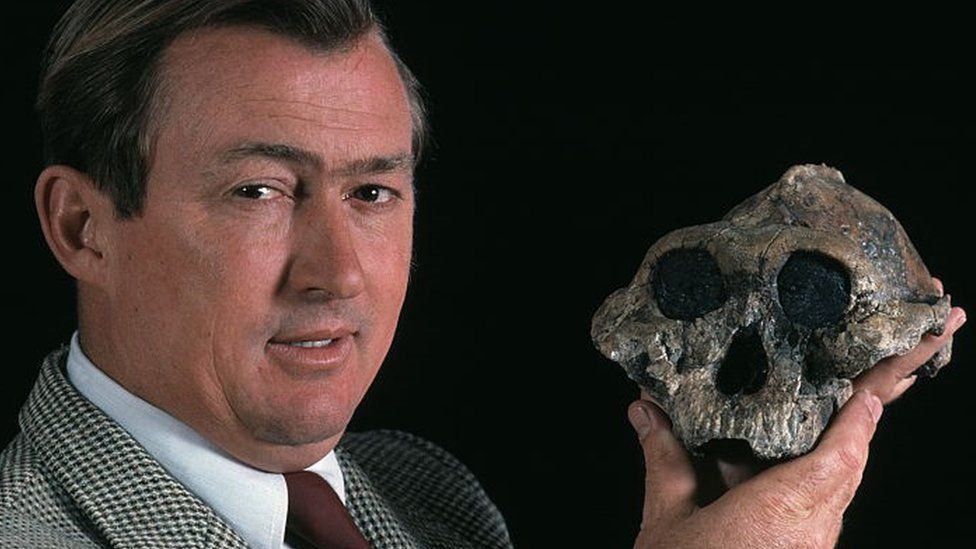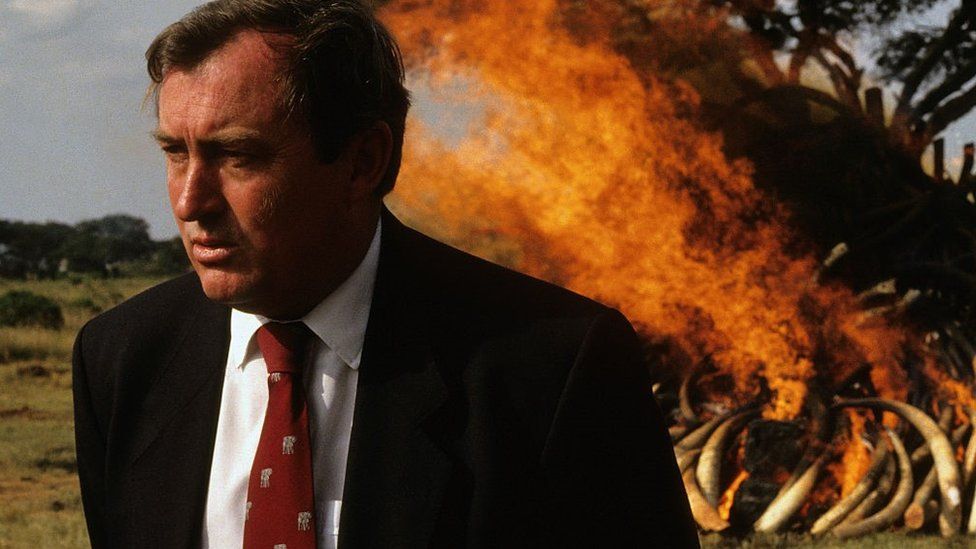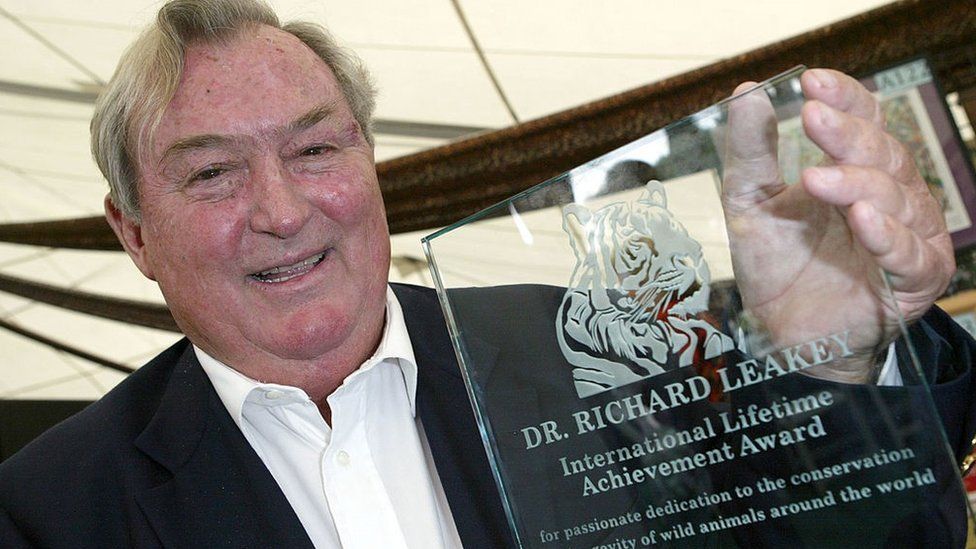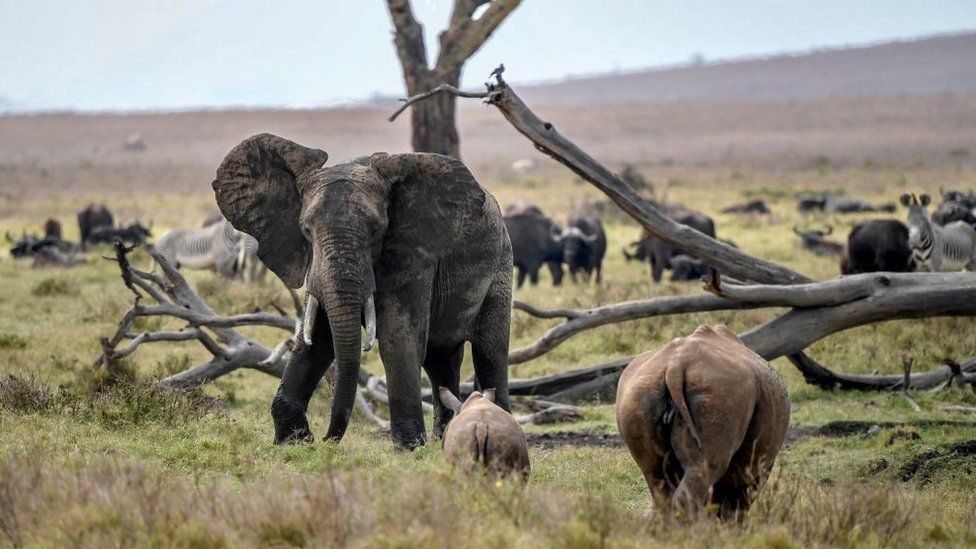Richard Leakey : fossil master, traditionalist and politician
Richard Leakey, who has kicked the bucket days subsequent to praising his 77th birthday celebration, was a contentious man whose accomplishments were just about as astounding as they were different.
Brought into the world on 19 December 1944 in Kenya's capital Nairobi, he was a world-popular fossil master, creator and protectionist, just as being a resistance MP, hostile to debasement campaigner, monetary reformer, and top of the country's affable help.
He was pummeled, compromised and severely harmed in a plane accident which saw him lose the two his legs.
"I think pressure likely suits me," Leakey once said with urbane misrepresentation of reality.
His first occupation was concentrating on fossils. His folks, Louis and Mary, were well known archeologists and scientistss who went through many years investigating Kenya's Rift Valley, looking for the starting points of humanity.
In the last part of the 1980s, Leakey changed professions to take over as top of Kenya's Wildlife Service (KWS) when the association was near breakdown and poachers were occupied with clearing out the country's whole elephant and rhino populaces.
Fiery, savage and apparently honest, Leakey advised his officers to shoot poachers without hesitation and coordinated the public consuming of a tremendous store of ivory as an exposure trick to cause worldwide to notice the danger looked by elephants.
"Individuals were truly stunned that ivory was making elephants become terminated," he told the BBC's Vivienne Nunis in a meeting in September 2021.
Leakey's techniques were effective however his contentious style procured him a lot of foes. It was an example that would be rehashed and once more.
When, in 1993, the single-motor plane he was flying lost power and crashed, many guessed that it was damage. Both of his legs were severed underneath the knee.
Tough and Honest
"Glancing back at my professions, the political side of my life was generally compensating as far as the country," he told the BBC.
However, it was a long way from being a simple ride.
On one event he was whipped by employed hooligans. President Moi depicted him as a bigot, a nonbeliever and an outsider.
Yet, in 1999 President Moi stunned the nation by designating Leakey as top of Kenya's considerate help, and of a purported dream group of reformers recruited to safeguard a nation marked one of the world's generally bad, from a developing monetary emergency.
Allies said Leakey had been perceived by the president as the main man adequately intense and genuine enough to haul Kenya out of its inconveniences, however addressed whether he would keep going long enough in the task to take care of any genuine great.
Pundits said the arrangement of a white man with no college degree was an affront to Kenyans and one which had plainly been organized by provincial mindsets actually hiding in the IMF and World Bank.
In his new position Leakey unquestionably assisted with further developing relations among Kenya and global loaning organizations. His arrangement might well have been significant in convincing the IMF to continue loaning the public authority cash.
For some time Leakey appreciated phenomenal prevalence as his fantasy group began an extreme redesign of the nation's swollen, degenerate, nepotistic administration.
Be that as it may, not surprisingly, Leakey ran into inconvenience. A few whined again about his uncanny capacity to make superfluous foes. Others said his hostile to debasement drive was undermining the interests of such a large number of strong figures. Leakey ventured down in 2001 - without giving any open clarification.
Leakey said he intended to resign from dynamic political life. He needed rather to develop grapes on his homestead in the Rift Valley.
In any case, in 2015, he got back to public existence with current President Uhuru Kenyatta delegating him as director of the leading body of the KWS. He expedited a dubious arrangement that permitted a Chinese-supported rail line to be worked through the Nairobi National Park.
"We can't say to individuals of Kenya: 'Gracious the railroad can't come through Nairobi Park so you will not have a rail route for quite a long time'," he was cited as saying at that point.
All the more as of late, his center had moved to what he considered the greatest ecological danger - environmental change.
"We've made a horrendous wreck," he said.
He expected that Kenya's public parks would one day stop to exist since they "would have dried out or cleaned out".
"Poaching, I figure we can manage. Be that as it may, environment misfortune and human extension to infringe on water frameworks and backwoods and contaminate the air - no, I see nothing being done in Africa," Leakey said.
He kicked the bucket with his fantasy about building a historical center on the edges of Kenya's Rift Valley, to praise advancement and the normal history from Africa that all people share, unfulfilled.
"I need to assemble a house of prayer of life, with no God," he said.
"We are one animal categories, we emerged from Lake Turkana 3,000,000 years prior and we need to remember we are in general in a similar house," he said.
Having lived in Kenya for his entire life, Leakey likewise called for more prominent interest in Africa to assist with making occupations, which he said would permit the landmass to "jump ahead".
"I'm ready for anything that we have the HR, Africa has recently became given a smidgen of a lift."
You can pay attention to the full meeting with Leakey on the BBC World Service radio program, Business Daily, on Wednesday at 08:30 GMT.



